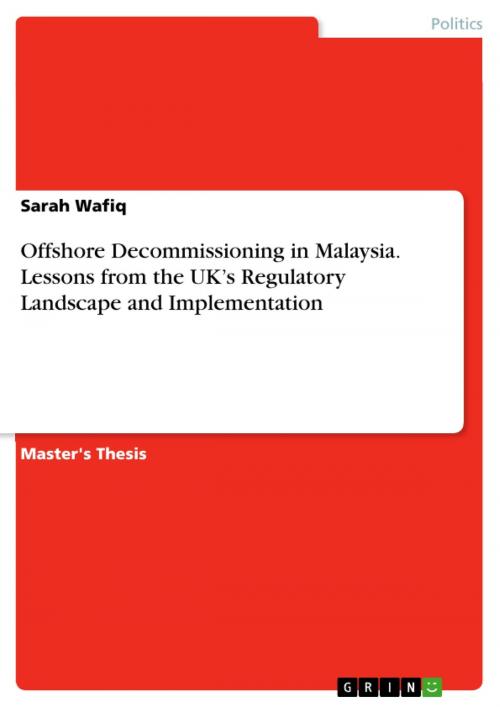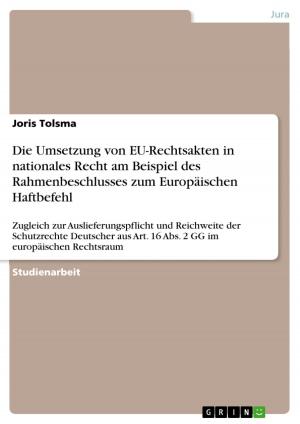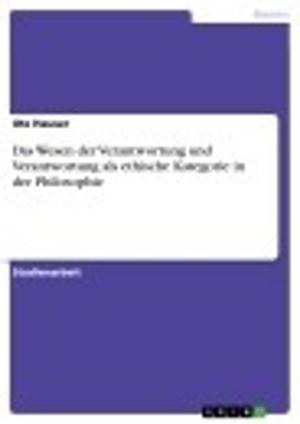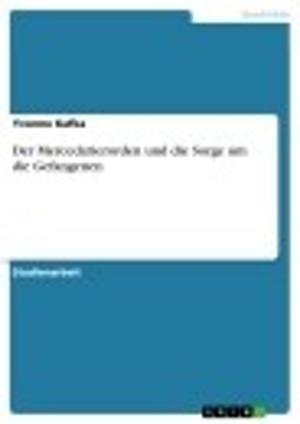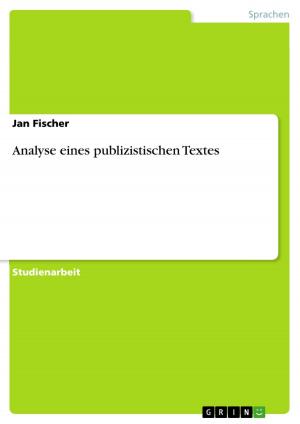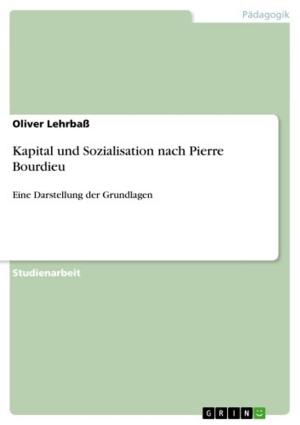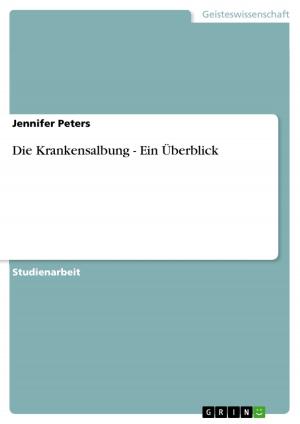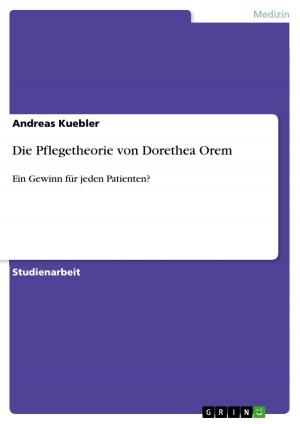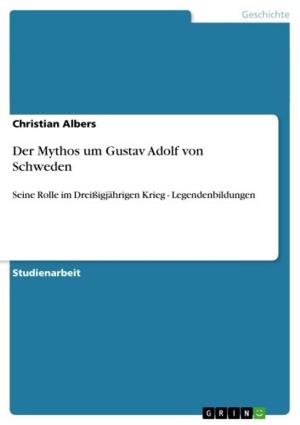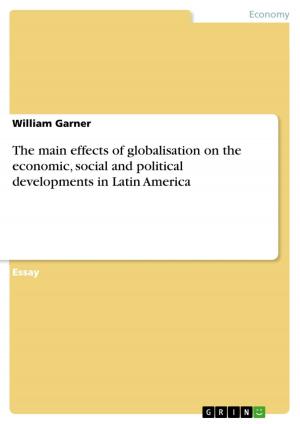Offshore Decommissioning in Malaysia. Lessons from the UK's Regulatory Landscape and Implementation
Nonfiction, Social & Cultural Studies, Political Science, International, International Relations| Author: | Sarah Wafiq | ISBN: | 9783668282544 |
| Publisher: | GRIN Verlag | Publication: | August 24, 2016 |
| Imprint: | GRIN Verlag | Language: | English |
| Author: | Sarah Wafiq |
| ISBN: | 9783668282544 |
| Publisher: | GRIN Verlag |
| Publication: | August 24, 2016 |
| Imprint: | GRIN Verlag |
| Language: | English |
Master's Thesis from the year 2015 in the subject Politics - International Politics - Region: South Asia, grade: Distinction, Coventry University, language: English, abstract: This research aimed at determining whether the Malaysian regulatory landscape governing the offshore decommissioning of petroleum facilities is adequate to face the scale of offshore decommissioning activities that will involve Malaysia, or whether it may need to be reviewed and inspired by the more established and long-standing UK's offshore decommissioning regime and practices. The researcher estimated that 195 offshore installations will undergo decommissioning in Malaysia by the year 2025, with a growth of offshore decommissioning activities equal to 244.4% over a ten-year period. Nevertheless, Malaysia has not yet promulgated any national decommissioning regulations for the oil and gas (O&G) industry - it only relies on the guidelines provided by its national oil company (NOC) PETRONAS. However, both these guidelines and the current Malaysian oil production-sharing contract (PSC) appear to be lacking guiding principles, and seem to be allowing international oil companies (IOCs) to escape their legal and financial responsibilities associated with offshore decommissioning. In light of these information, therefore, a comparison was carried out between the British and Malaysian offshore decommissioning scenarios, and possible improvement actions to the Malaysian legal and practical framework, inspired by the British one, were proposed by the researcher.
Master's Thesis from the year 2015 in the subject Politics - International Politics - Region: South Asia, grade: Distinction, Coventry University, language: English, abstract: This research aimed at determining whether the Malaysian regulatory landscape governing the offshore decommissioning of petroleum facilities is adequate to face the scale of offshore decommissioning activities that will involve Malaysia, or whether it may need to be reviewed and inspired by the more established and long-standing UK's offshore decommissioning regime and practices. The researcher estimated that 195 offshore installations will undergo decommissioning in Malaysia by the year 2025, with a growth of offshore decommissioning activities equal to 244.4% over a ten-year period. Nevertheless, Malaysia has not yet promulgated any national decommissioning regulations for the oil and gas (O&G) industry - it only relies on the guidelines provided by its national oil company (NOC) PETRONAS. However, both these guidelines and the current Malaysian oil production-sharing contract (PSC) appear to be lacking guiding principles, and seem to be allowing international oil companies (IOCs) to escape their legal and financial responsibilities associated with offshore decommissioning. In light of these information, therefore, a comparison was carried out between the British and Malaysian offshore decommissioning scenarios, and possible improvement actions to the Malaysian legal and practical framework, inspired by the British one, were proposed by the researcher.
